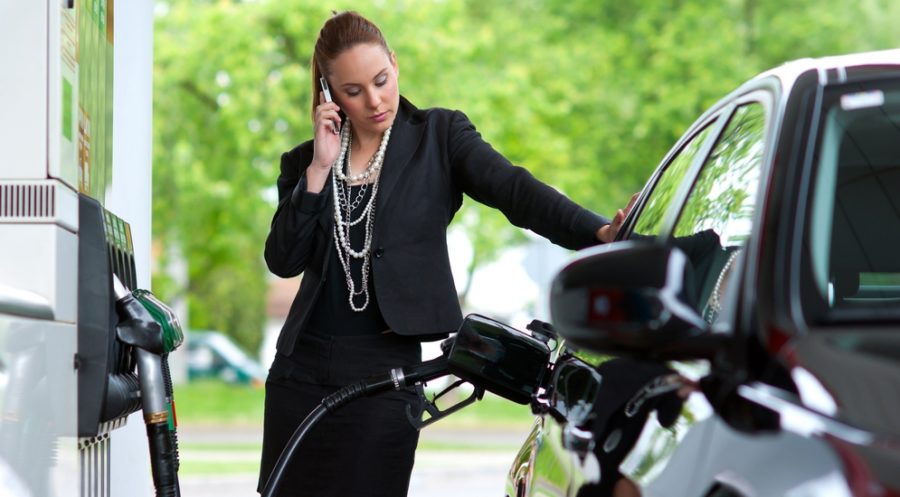Almost all Russian gas stations are “decorated” with signs that prohibit smoking, as well as refuel with engines running and phones turned on. The first two points of these requirements are quite understandable and usually do not cause special objections from drivers and passengers. But the restrictions associated with the work of mobile gadgets often cause bewilderment, which is the reason for the emergence of a variety of fables.

Content
Myths and legends
Currently, there are immediately three seemingly reasonable versions of why it is forbidden to be on the territory of a gas station with a mobile phone turned on. After all, these devices, according to “popular” experts, are quite capable of:
- pull the zipper;
- cause a fire with your own radio waves;
- cause a malfunction in the operation of automatic equipment.
The phone attracts lightning
The people have a strong opinion that mobile devices attract lightning. Journalists and some scientists who claim that recently, almost all people struck by lightning have carried telephones in their contribution to the existence of this version.
However, these “experts”, in the pursuit of sensation, do not bashfully mention that it is difficult to meet a person on the street without a smartphone, and the number of people affected by lightning has not increased after the advent of mobile gadgets.
In fact, there is a scientific theory, time-tested, that during a thunderstorm an electric discharge from the cloud (minus) always goes along the shortest distance to the earth's surface (plus), most often striking the highest objects in the area - trees, poles, buildings, lightning rods etc.
Therefore, a person can really become an object for a lightning strike only in a clean field and regardless of whether the phone is turned on in your pocket or hand. But at the gas station, such a danger to the owners of mobile gadgets is minimized. Indeed, in this territory there are higher objects, as well as a lightning protection system.
A fire from the smartphone’s radio waves may occur.
Each of us went to school and is well aware that electromagnetic waves can cause a fire. It is this knowledge that formed the basis of another theory about why you can not turn on the phone in the gas station.
“Experts” say that electromagnetic waves from a turned on smartphone can cause the formation of eddy currents in objects made of metal and electrical circuits that begin to heat up and spark. As a result, gasoline or gasoline vapors can explode and provoke a strong fire at a gas station.
Failure of automatic equipment at gas stations
There is another theory according to which a working smartphone is capable of causing a malfunction in the software of automatic equipment at a gas station, which can lead to a “freeze” of control systems and even blocking of gas stations.
Such cases really happened earlier in the days of the existence of old-style cordless phones, the powerful radiation from which created serious interference with the operation of any electronic equipment, including gas station equipment.
However, modern gadgets do not have such abilities and perfectly get along with electronic devices of various types, including fuel dispensers, the filling of which is not susceptible to radiation from mobile devices.
So why is it forbidden to use “mobile phones” at gas stations?
The reason for this limitation is industry regulation. According to Russian law, the territory of a gas station is considered an explosive area where you cannot use any electronic devices that have not passed the relevant certification for safety. Mobile phones, with rare exceptions, do not have such a certificate and therefore must be turned off during refueling.
To adhere to this limitation is also worthwhile from a scientific point of view. Scientists have repeatedly and convincingly proved that during communication on mobile devices a person becomes inattentive and forgets about basic precautions. Such "relaxation" can lead to significant financial losses if the driver, keen on a telephone conversation, for example, forgets to pull out a gun from the neck of the tank ...